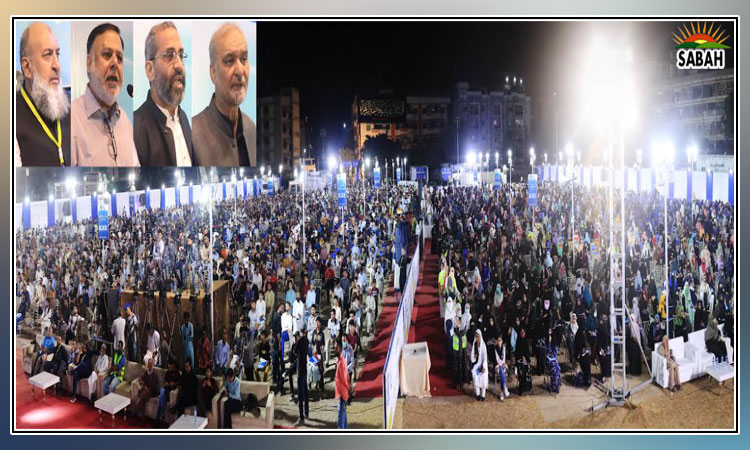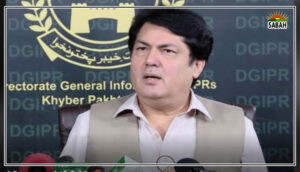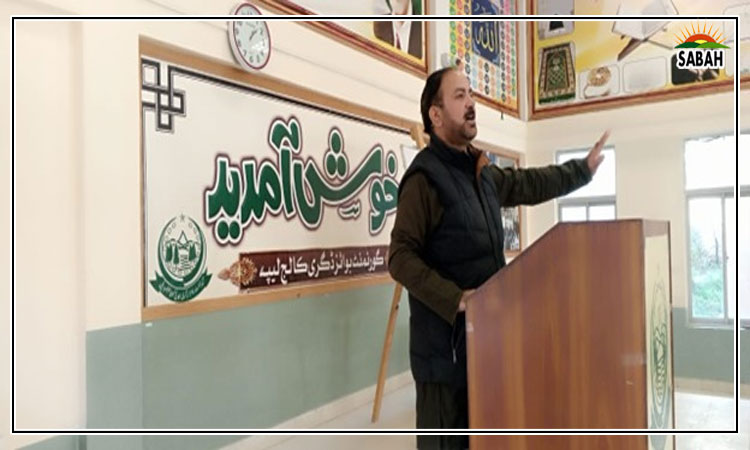From Khudi to Crisis: How Pakistan Strayed from Iqbal’s Philosophy?…by Muhammad Mohsin Iqbal
Hakeem ul Ummat Allama Muhammad Iqbal, often regarded as the “Spiritual Father of Pakistan,” envisioned a nation where justice, equality, and self-awareness would be the cornerstones of society. His vision went far beyond the mere establishment of a state; it was about building a community where Islamic values could flourish, guiding not only personal life but also social, political, and economic development.
Allama Iqbal’s idea of Pakistan was founded on the belief that Islam was not just a religion but a complete code of life. He sought to create a nation that would demonstrate how Islamic principles could be harmonized with modernity. His philosophy of “Khudi,” or selfhood, emphasized the importance of self-realization, not only for personal growth but also for the betterment of society. He urged individuals to awaken their sense of responsibility and strive toward collective well-being.
Allama Iqbal envisioned Pakistan as a model for the rest of the Muslim world—a place where Islamic principles of justice, equality, and freedom would be reflected in governance, law, and daily life. He believed that a nation built on these values would be capable of overcoming challenges and achieving moral and material progress. However, the Pakistan of today, more than seven decades after its creation, presents a stark contrast to Iqbal’s ideals.
The country is mired in political instability, economic disparity, and social fragmentation. Corruption and nepotism have seemed to be polluted the responsible that are meant to uphold justice and equality. A small group of leading class enjoys immense wealth and power, while a vast portion of the population struggles to meet their basic needs. These issues are not only political and economic but also moral, revealing a deep disconnect between the principles Iqbal advocated and the current reality.
One significant factor in the unfulfilled realization of Iqbal’s vision is the absence of robust morals and integrity. Since Pakistan’s inception, the nation has been ensnared in a continuous cycle of crises. Iqbal posited that a nation’s prosperity hinges on the moral fortitude and foresight of its decision makers. Regrettably, there have been accusations them that many leaders have placed personal benefits above the nation’s welfare, cultivating an environment of short-term gains and opportunistic behavior. Rather than steering the nation toward the principles of justice and equality, they have frequently acted out of self-interest.
Although Iqbal is frequently cited in speeches and national ceremonies, his teachings have not been genuinely integrated into the country’s policies or governance. His philosophy is often reduced to symbolic references, with little effort to apply his ideas in practical ways. The educational system, which Iqbal believed to be the foundation of moral and intellectual development, has also suffered from neglect. Rather than nurturing thinkers and leaders who can address the nation’s challenges, the education system tends to focus on rote learning, producing individuals who are ill-equipped to think critically or engage with the complexities of the modern world.
Moreover, the pervasive influence of external powers has diverted Pakistan from the path of self-reliance that Iqbal advocated. Geopolitical pressures have led to decisions that prioritize interest of others over national priorities. Iqbal emphasized the importance of self-reliance, both for individuals and the nation, but Pakistan has become increasingly dependent on foreign aid and loans, which has undermined its sovereignty and ability to implement policies that reflect its own values.
Another significant issue is the misuse and misinterpretation of Iqbal’s philosophy. Speakers often invoke his name and poetry to lend legitimacy to their agendas, yet their actions frequently contradict the values Iqbal stood for. This superficial engagement with his work has reduced Iqbal’s transformative ideas to mere slogans, stripping them of their deeper meaning and potential to guide meaningful reform.
To bring Pakistan closer to Iqbal’s vision, there must be a fundamental shift in both leadership and national consciousness. A serious re-engagement with Iqbal’s ideas is needed, not merely as part of intellectual discussions but as a practical framework for addressing the country’s challenges. His concept of “Khudi” must be revived, encouraging individuals to take responsibility for their own growth and the collective good of society. This involves promoting a culture of self-reliance, hard work, and moral accountability.
The educational system must also be reformed to reflect Iqbal’s emphasis on intellectual and moral development. Schools and universities should not only teach Iqbal’s works as part of the curriculum but should also encourage students to think critically, engage with contemporary challenges, and apply Iqbal’s teachings to real-world problems. By producing a new generation of thinkers and leaders, Pakistan can move closer to realizing Iqbal’s vision.
In addition, political leadership must embody the values of integrity, selflessness, and moral responsibility that Iqbal championed. It is not enough to merely invoke Iqbal’s name for political purposes; leaders must commit to building a society that reflects the principles of justice, equality, and self-reliance that he advocated. This requires a shift from short-term political gains to a long-term vision for national progress.
Finally, Pakistan must reduce its dependency on external powers and focus on building a self-sufficient economy. Iqbal envisioned a nation that could stand on its own, free from the constraints of foreign interference. By prioritizing economic independence, technological advancement, and social justice, Pakistan can begin to fulfill the promise of becoming the just and prosperous nation that Iqbal dreamed of.
In conclusion, while Pakistan has strayed far from Iqbal’s vision, it is not too late to return to the path he outlined. By sincerely embracing his teachings and applying them to the realities of today, Pakistan can still achieve the dream of becoming a nation that is not only free and independent but also just, moral, and self-reliant. Iqbal’s vision is not a relic of the past but a living philosophy that holds the potential to guide Pakistan toward a brighter future.












